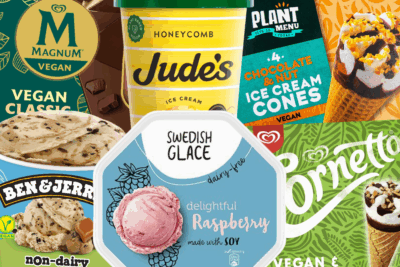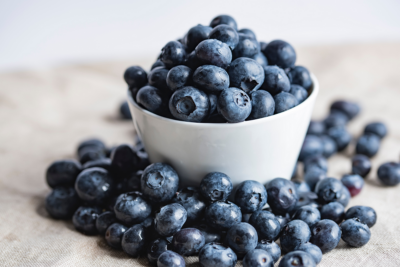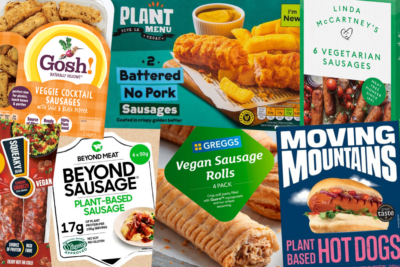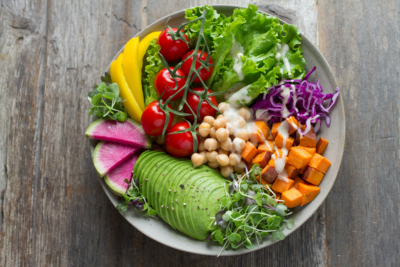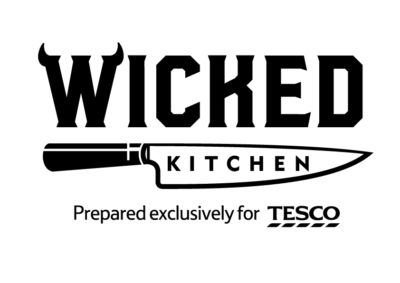Why it’s important to work with big companies. Opinion piece by Matthew Glover, Co-Founder of Veganuary, June 2018.
Some people in our movement choose to boycott and campaign against big companies who currently exploit animals. These activists are concerned about:
- the ethics of these companies
- the types of foods they’re producing (such as processed, rather than whole food, plant-based)
- how they’re produced
- and how they’re packaged
I sympathise with these views and share the pain, anger, and frustration in how this world treats animals. But to achieve animal liberation I believe we need to work within the current system, and not always try to fight it. Let’s imagine that the black rectangle below represents the global meat, dairy and egg industries.

If we then compared this with the equivalent plant-based food sector (those companies manufacturing replacement meat, dairy and egg replacements) then the white square overlaid onto the black below gives some idea of the scale of the challenge.

The plant-based food sector is substantially smaller, and probably much smaller than I’ve suggested in comparison. Now, much of these companies are actually owned (or partly owned) by the meat, dairy and egg industries, or other companies/individuals we might not feel ethically aligned with.
So, if we looked further at the 100% ethical businesses making alternatives to meat, dairy and eggs, then the white square would be much smaller.

Assuming these 100% ethical vegan businesses grow tenfold over the next ten years then we’d all think this is amazing news and a sure sign that the vegan movement is winning!
But, it will still be very small compared to the meat, dairy and egg industries.

And with consumption of animal products predicted to expand globally over the coming years then the meat, dairy and egg industries will also grow. The black rectangle actually gets bigger:

Even though the rate of growth is not as fast as the 100% ethical vegan businesses, because the meat, dairy and egg industries were so big in the first place we’ve actually lost ground. More animals are being harmed despite the massive growth of the 100% ethical vegan businesses.
I’m not saying we shouldn’t support vegan companies. Of course we should! Of course we do!
The irony is, as many vegan food entrepreneurs tell me, the big companies are helping to drive demand for plant-based options and that actually improves their own custom base!
What is a 100% ethical vegan business anyway?
Do 100% ethical vegan businesses exist? Do they only employ vegans? Do their employees spend their salaries with ‘unethical’ companies? Do they buy ingredients from less ethical companies? Where do they bank? Where do we draw the line?
It’s very difficult to buy from 100% ethical companies all the time. In fact, it’s probably impossible. When we shop at our local stores they sell animal products. When we eat out at restaurants they often sell animal products or employ people who eat animal products and get supplies from non-vegan companies.
We encourage and support all companies to offer plant-based options, as it will reduce animal suffering every time someone chooses it. And sends a clear message that this is what customers want.
Let’s make it easier for people to choose vegan.
And, perhaps more importantly, can these more ethical businesses ever scale up fast enough to create a vegan world?
This is the current situation. This well-shared infographic highlights how 10 companies control almost every food and beverage brand in the world.

Image credit: Oxfam
These companies — Nestlé, PepsiCo, Coca-Cola, Unilever, Danone, General Mills, Kellogg’s, Mars, Associated British Foods, and Mondelez — each employ thousands of people and make billions of dollars in revenue every year.
They control the majority of what we see on our supermarket shelves.
Big Meat
If we look at the four biggest meat companies operating in the US, their combined revenues are over $210 billion (Cargill $109.7b, JBS $49b, Tyson $38.1b, Smithfield $14b).
In comparison, four of the biggest replacement meat companies operating in the US have combined revenues of less than $1b – Gardein $150m (estimate), Follow Your Heart $50m, Field Roast $38m, Tofurky $25m (estimate). Beyond Meat and Impossible Foods are still relatively new companies so there are no figures available online.
So, let’s imagine that over the next 10 years these four vegan food companies grow tenfold – then the combined annual revenue would be in the region of $2.6b.
That would be impressive growth and I hope it will happen! Let’s also imagine that the four big meat companies grow at a slower rate of just 10% over the full ten year period.
That would mean revenues would grow from $210b to $231b. That’s 10 times more actual growth than the four vegan companies, and if these companies continue to sell mostly meat then that’s a whole lot more animals being slaughtered despite the amazing growth of the vegan companies.
(I realise there are lots of other factors at play, but I’m trying to simplify things to demonstrate the bigger picture.)
Chain Restaurants
Let’s think about chain restaurants. McDonald’s, Subway, KFC and Burger King have over 100,000 restaurants between them globally.
There aren’t many sizeable vegan chain restaurants that I’m aware of, but if you looked at Loving Hut, Veggie Grill, and Native Foods then we’re in the region of 200 restaurants combined.
Again, if the vegan chain restaurants each grew tenfold over the next ten years, and the big four chains serving meat only grew at 10%, we’d still have more animals potentially being harmed.
Throughout the world, there are 15,000,000 restaurants and yet according to Happy Cow, there are around 6,300 vegan restaurants. So vegan restaurants represent just 0.04% of all restaurants.
The number of vegan restaurants is growing fast, and I hunt them down and support them whenever I can. But, we have to understand that the 14,993,700 restaurants currently serving animal products are where our advocacy needs to be focused.
Supermarkets
In the UK, 10 companies control over 96% of the grocery market.
Independents have 1.8% of the market, and other outlets have a further 1.8%. The 100% ethical vegan shops will represent a small fraction of the 1.8% ‘other outlets’ sector.
There are no large vegan supermarkets in the UK, and there’s not likely to be any in the near future. Most of us cannot avoid spending our money with these 10 big corporations. It’s a similar picture in other countries too.
Is boycotting big businesses bad for animals?
Boycotting these companies, and campaigning against them might provide us with a clearer conscience, but is it the right thing to do? And does it even work? Let’s look at three recent examples…
In July 2017, Daiya cheese was bought by Otsuka for $325m. Many vegans at the time were angry because this was a big pharmaceutical company, and like all big pharmaceutical companies, they test on animals. I saw lots of people very publicly saying they will no longer buy Daiya products. Some retailers said they would pull Daiya products from their shelves. People felt betrayed.
How has this panned out for Daiya? Well, despite vegans boycotting them, sales are booming! With this new investment, they’re expanding into a new larger 400,000 s qft factory, hiring staff and they’re on track to generate $1b revenue. This is very good news for cows.
In 2016, Tyson Foods (a big meat company) bought a 5% stake in Beyond Meat. Many vegans were very upset by this. ‘Beyond Meat had sold out!’ some exclaimed.
But, if we’re focusing on reducing animal suffering, this was a very good move. Tyson has started to see themselves as more of a ‘protein company’ rather than a ‘meat company’. At the time the CEO of Beyond Meat, Ethan Brown, wrote about why he was welcoming Tyson Foods in as an investor and stated:
Do I think Tyson and its executives are the enemy because they have a radically different view of our relationship to animals? I don’t. I realize that this may disappoint many people.
In fact, I’ve found the Tyson executives with whom I’ve interacted to be principled and constructive people. It is true, their beliefs don’t comport with mine on animals.
Yet neither do those of my broader family, the vast majority of my friends, colleagues, neighbors, and many others I greatly respect, all of whom eat animal-based meat.
The good news is that Tyson and I can—and do—agree on many other things including: the need for sustainable protein for a growing global population; that innovation can fuel growth and profit; and that business best serves the consumer by offering choice.
Tyson has since increased their stake in Beyond Meat, and also invested in Memphis Meats (a clean meat company).
Since 2016, Beyond Meat has been increasing production, developing new products (such as the Beyond Sausage) and are soon to launch internationally. This is a product that non-vegans like and has the potential to be a game-changer in encouraging more people to adopt a vegan diet.
Danone is the world’s largest yoghurt maker who bought Whitewave Foods in 2016 for $12.5b and along with it the plant-based milk brands Alpro, Silk and So Delicious. Many vegans were unhappy about this.
‘Another vegan brand sells its soul!’ People were worried that profits from plant milks could mean more animals are exploited in Danone’s dairy division.
So, what’s happened since the acquisition? In 2017, Danone released their financial results and profits at the company had grown mainly due to the Whitewave products. The sales in the dairy division (brands such as Activia & Actimel) had fallen 2.3%, but the plant-based milks achieved double-digit growth.
Now imagine if you were sitting in the Danone boardroom and talking about the future direction of the company, would you be thinking it’s best to invest in dairy products whose sales are flat or declining or plant-based milks whose sales are achieving excellent growth? I know what I’d be doing…
Could it be that historic profits from the dairy industry are actually being used to invest in a plant-based future? Could it be that companies like Danone will accelerate the adoption of plant-based milks far faster than 100% ethical vegan businesses could ever achieve? I think so.
For many vegans, McDonald’s is the epitome of a bad company. Even though most restaurants throughout the world serve dead animals, McDonald’s is the worst. So, when they brought out the McVegan in Finland & Sweden during Veganuary some people got very upset.
But, they’ve got 36,900 restaurants. Lots of people eat there (in fact, they sold 150,000 McVegans in January alone). Every time a person chooses a McVegan over a Big Mac then that’s a win for animals. McDonald’s is not going to go away so the best thing that we can realistically expect is a gradual change.
Times are changing…
The good news is more and more people are seeing the benefits to animals by engaging positively with corporates.

This year ProVeg International and HSUS arranged the ’50by40 Corporate Outreach Summit’ in Berlin. It brought together NGOs from over 30 countries to talk about strategies to influence companies to add more plant-based options.
It was amazing to be part of this.
With the success of Veganuary, we’ve found that big brands and big companies have been keen to talk with us. And there are a few companies as big as Unilever who invited me to speak about veganism at a ‘Flexitarian Immersion Day’ they’d organised. So, I took a selfie:

In the background, you’ll see the brand managers of various Unilever brands including Pot Noodle, Hellman’s, Marmite, Bovril, Colman’s, Knorr and Red Red.
What I found out from being at the event was that:
- Unilever has some really nice people working there.
- Many of the employees share similar values to us and care about the environment, health and animal welfare. One of the product developers was reading Jonathan Saffron Foer’s book ‘Eating Animals’ and thinking of going vegan.
- They’re taking plant-based foods very seriously and calling 2019 ‘The Year of Plant-Based’.
This is progress! And I have follow-up meetings arranged with other senior figures at Unilever who are keen to learn more about this growing trend. Unilever has annual sales of over 50 billion euros, so if they’re looking at the plant-based space seriously then we should fully support this.
I met with the insight team at Greencore. They make 690 million food-to-go products (sandwiches, wraps, sushi etc) each year and supply most of the major supermarkets, high street chains, petrol forecourts and convenience stores.
They are finding that their customers (the supermarkets) are requesting more vegan options because consumers are demanding them. If all vegans boycotted supermarkets then they would not see the demand, and Greencore would never have asked me to come in and talk to them.
And, the bigger picture is getting more shelf-space for plant-based food-to-go products, so non-vegans choose them instead of the animal-based versions.
A win for animals! It also makes it easier for people to stay vegan. The number one reason why Veganuary participants return to eating animal products is difficulty eating out and accessibility of vegan food.
I’ve also met with other food service companies, supermarkets, and chain restaurants recently, and as a growing organisation we hope to leverage our position even more over the coming years to influence them to go more plant-based.
Should we be happy if corporates make money out of vegans?
Yes, we should! 100%.
If these companies experience profits from the growth of vegan products, they will become less resistant to the plant-based evolution.
The meat, dairy and egg lobbies are really powerful, but as these industries’ financial dependence on selling animal products decreases, while the profits from selling vegan products increase, we can expect a shift in their attitudes. We’re already seeing this and it will grow.
Indeed, I don’t think we can do this without them. Big companies have:
- economies of scale
- the cash to invest
- huge advertising budgets
- the infrastructure (warehouses, delivery vehicles and all the systems in place)
- and they have more staff!
They can accelerate research and development and have more power at government level to affect change.
We should see big companies as our potential allies. And we need to help these companies to evolve into something else… something better!
It feels like it’s human nature for us to always need enemies. Somebody to blame. And, for many, animal liberation is a fight. I understand this. But before rushing to make judgements about companies, maybe we could practise slow opinion.
- Let’s try to take the perspective of the other party.
- Let’s not be mind-readers – we don’t always know what other people’s or the company’s intentions are.
- Let’s be open-minded.
- Let’s remember that most of us willingly took part in the exploitation of animals ourselves.
Even if you’re not convinced and wish to continue boycotting big corporations, at least avoid criticising those who wish to support them going more plant-based.
[This is a blog version of a speech I gave at a Vevolution Topics event in London in June 2018].




